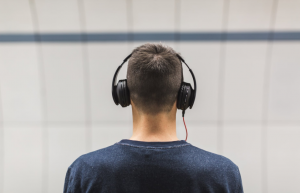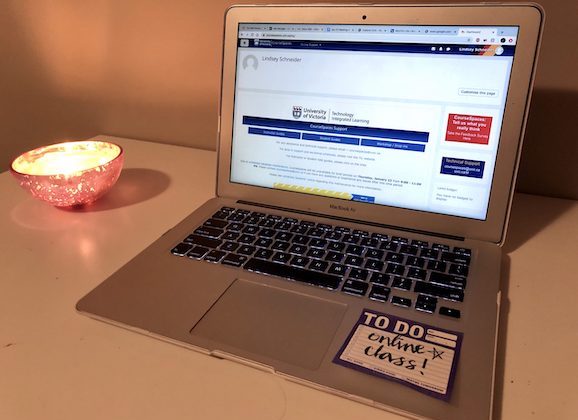Maintaining Your Independence When Moving Home
 If you’re one of the many students that returned to live with their families during times of quarantine and social distancing, things might feel a little bit extra surreal as you relive your childhood and high school days at home.
If you’re one of the many students that returned to live with their families during times of quarantine and social distancing, things might feel a little bit extra surreal as you relive your childhood and high school days at home.
Coming home for extended periods of time can be a bit tricky for a variety of reasons. It always feels a little bit like you’re regressing to a former version of yourself, your parents watching your every move, siblings barging into your room unannounced, and getting lectured by various family members for everything you’re doing wrong.
I’ve found these experiences can create a small identity crisis as memories of adolescence collide with your burgeoning sense of adulthood. You learn and change so much when you move away from home, and sometimes it can be difficult to strike a balance between your new-found independence and individuality with the expectations of your family.
Everyone’s living situation varies and offers a different set of challenges. These are just a few things that I have found helped me re-acclimate to living at home. I hope they’ll be able to help you too.
1. Keep your headphones handy.
 I have found headphones to be a saving grace in all of this. They don’t have to be fancy noise cancelling headphones, they just have to fit comfortably in or over your ears and can convey sound.
I have found headphones to be a saving grace in all of this. They don’t have to be fancy noise cancelling headphones, they just have to fit comfortably in or over your ears and can convey sound.
When you’re at home, it can be difficult to tune out “house sounds”, like blenders and arguments. But headphones create a little cocoon of peace, where it’s just you and whatever you’re listening to.
This may seem like common sense, but I am shocked by how emotionally attached I have become to my headphones in the last few months. By the same token, foam ear plugs work wonders when you’re trying to get work done and can’t focus with music, or you have a loud snorer in the family and you’re a light sleeper.
2. Have a personal project.
 When you put your mind to a task or project that is all your own, it can give you that “me” time that you’re looking for. Pick up a pen and write a short story, use those paints you bought ages ago and try a Bob Ross tutorial.
When you put your mind to a task or project that is all your own, it can give you that “me” time that you’re looking for. Pick up a pen and write a short story, use those paints you bought ages ago and try a Bob Ross tutorial.
Try an exercise challenge on YouTube or learn a new language on one of the many wonderful free apps. Channeling creativity and energy into a personal goal can distract you from what’s going on in the rest of the house, even just for a little while. It gives you an excuse to hole up in your room and disconnect from the rest of the world (and from your family) whenever you need a break.
3. Find your own space.
 This one can be a bit tricky depending on the layout of your home. If you have your own bedroom, dig up some candles from around the house or invest in some fairy lights from the internet.
This one can be a bit tricky depending on the layout of your home. If you have your own bedroom, dig up some candles from around the house or invest in some fairy lights from the internet.
Try scrolling through Pinterest and take on some DIY décor projects. If you don’t have the option of having a whole room to yourself, find a space in your home where you can spread out your stuff a little bit and work or relax comfortably. This can be a corner in the living room, an apartment balcony, or even just a portion of the kitchen counter.
Just as you would with a bedroom, make this space yours with little touches like a warm blanket and your favourite mug. Or if your community permits it, go for walks on your own and soak in summer unfolding before you (abiding by government social distancing rules, of course). Find a time and place where you can just focus on yourself.
4. Communicate and set boundaries.
It’s important to be vocal about your needs and how you’re feeling, even when it seems difficult to speak up. If you’re finding it difficult to concentrate on your online classes because of noisy family members, or you feel like your privacy isn’t being respected, talk to your parents and family about it.
I know how intimidating it can be to talk to relatives about how their actions are affecting you, especially if your family is of the yelling type (mine certainly is). But try keeping your cool and talk to them the same way you would to your roommates if their behaviour was bothering you.
Make your concerns clear to your family and discuss how you can all work together to ensure that everyone’s needs are being met.
5. Reach out when things get overwhelming.
Everyone has a different relationship with their families, and returning home to a difficult or toxic home life is extremely challenging. But please remember that you’re not alone.
If you’re having a rough day or find yourself in a bit of an emotional slump, call a friend, partner or loved one and talk it out. Try venting your emotions in a journal or as a voice memo on your phone. If you’re in an environment or situation that is negatively effecting your mental health, there are various resources you can use even as we social distance. UVic Counselling Services continues to offer sessions by phone. Find more details about their services.
You can also reach out to the Vancouver Island Crisis Line at 1-888-494-3888, or go to here2talk.ca for 24/7 mental health counselling and community referrals specifically for post-secondary students in BC.
This is a challenging time for so many reasons, and your emotions are valid. There’s no shame in asking for support at any time. There are people who are ready to listen and help in any way they can.
Times are weird, to say the absolute least. We’re all just trying to find ways to cope with a tsunami of emotions and unexpected changes. It’s even more challenging because we can’t see into the future or create a timeline for when things will go back to “normal.”
It’s easy to get frustrated and overwhelmed, and family can be difficult to deal with. Remember to take care of your mental and physical well-being throughout all of this.




This is an amazing post Izabella! (And yes, headphones are crucial)
Thank you so much Lindsey! I really appreciate it!